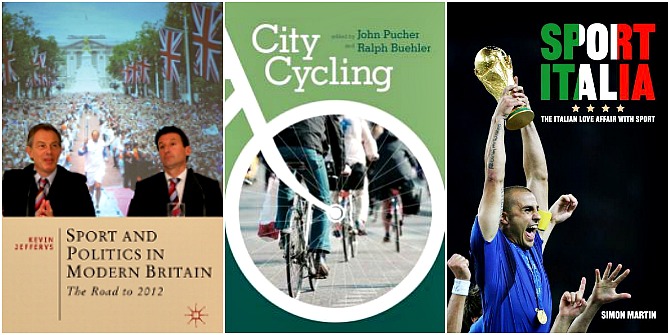After a century in which we have assumed social networking and community to be in decline, Facebook has suddenly hugely expanded our social relationships, challenging the central assumptions of social science. It demonstrates one of the main tenets of anthropology – that individuals have always been social networking sites. This book examines in detail how Facebook transforms the lives of particular individuals, but it also presents a general theory of Facebook as culture and considers the likely consequences of social networking in the future. Daniel Miller‘s book is a welcome and distinctive contribution to what is currently a small body of work on emerging online social networks, finds Chris Gilson.

Tales from Facebook. Daniel Miller. Polity Books. July 2011.
Facebook, the near all-encompassing social network. In a few short years, the creation of Harvard genius and entrepreneur, Mark Zuckerberg, has expanded to a point where it now has over 800 million active users. If it were a political entity, it would be smaller than only China and India in terms of population. Four per cent of all the photos taken by the entire human race, ever, are on Facebook. But what about its users? In his new book, Daniel Miller studies Facebook using the stories of 12 very different people who all have one thing in common – they all use Facebook to fulfil a specific need.
The first three quarters of the book is devoted to an engaging series of personal vignettes about Facebook. While Miller has based his case studies in Trinidad (ostensibly to show the heterogeneity of Facebook across the world), the stories are familiar enough to anyone who has spent any time in the world of social networking. Through his interviews and observations, Miller brings to life each person, the most interesting being: an ageing but formerly very active (both physically and socially) man who uses Facebook to get over his constraints, a young man with few opportunities who finds social comfort in the immensely popular Facebook game, Farmville, a Trini music star who has had to face the online and offline consequences of a leaked intimate video, a keen church member who uses Facebook to promote the church and connect with other believers, and a man who uses Facebook for business as well as socialising.
These multifaceted portraits of the lives of each of his case studies can be surprising. For instance, one of his interviewees, Ajani uses Facebook heavily to promote her art and political activism, but is never revealing about her private life, ‘teasing’ in the words of the author. While the idea of the different versions of one’s social self – the persona – is an ancient one, the technology of Facebook allows people to show off their different selves in ways that were not previously possible. Miller’s use of close participant observation with his research subjects builds a richness to his stories, but these descriptions occasionally become almost too intimate, and that can be jarring for readers who might be more interested in the book as an investigation of Facebook itself.
Though it is geographically based in Trinidad, this book is still about Facebook and how we interact with it. That said, Miller often leads readers on tangents that are really more about Trinidad than Facebook. For example, Miller makes much of the Trini concept of the ‘bacchanal’ (the idea of scandal and confusion) to illustrate the difficulties in Facebook’s interactions with public and private spaces, but it is not as if scandals are unknown on Facebook in the UK or the US – just ask any person who’s compromising photos from a night out have been uploaded by their well meaning friends for all (including family and employers) to see.
The final quarter of the book is devoted to an intentionally scholarly account of Facebook, where Miller tries to fit the website into an explicitly Trinidadian, and then for comparison’s sake, a Melanesian social framework. His conclusion (and this may be applicable outside of his geographical study areas), is that Facebook, when it really comes down to it, is a cipher for ‘real’ social interactions. Loyalty, kinship, friendship and relationships are reconstructed in the space of Facebook, and are positively reinforced by it. Still more, Miller sees Facebook as the potential saviour of close social relationships (apparently in decline for most of the last century), bringing people together often over great distances.
However, despite all these richly described personal experiences of Facebook, Miller says little about the actual user-experience of the site itself. There are no images or representations of Facebook’s user interface, meaning that readers who have not joined will be left somewhat in the dark.
Going back to the size of Facebook – one thing that Miller also doesn’t address is the relative powerlessness of its users. As a free service, Facebook users have next to no power to affect change in their online lives, and Facebook is always keen to make changes – witness the squeals of horror from users when even the most minor alteration to the user interface occurs. For Miller, Facebook isn’t a company with a valuation and a share price, it’s simply a (digital) means to a social end. There is no real discussion of the privacy controversies that now constantly dog Facebook, and that its users are essentially commodities to be sold to advertisers, without which the company would likely not be able to exist. Despite these critiques, the book is a very welcome and distinctive contribution to what is currently a small body of work on emerging online social networks.
This review was originally published on the British Politics and Policy at LSE Blog on 9th October 2011.
——————————————————————————————-
Chris Gilson joined the LSE PPG in December 2007 as Editor/Researcher and has worked on the long-standing hot review contract with the National Audit Office, review work for the European Court of Auditors, and is now the Managing Editor of the European Politics and Policy at LSE blog. Before this, he worked for three years at the Department of Health. Read reviews by Chris.







